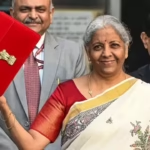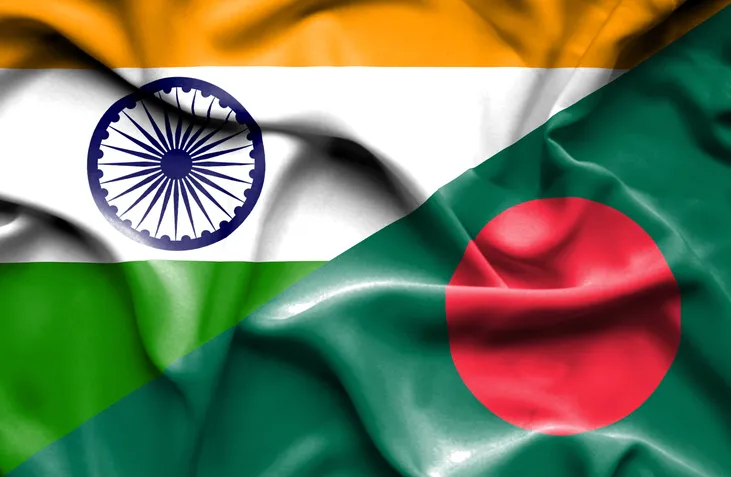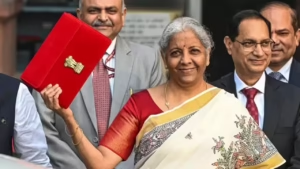The diplomatic relations between India and Bangladesh have deteriorated significantly following an assault on the Bangladeshi mission in Agartala, Tripura, earlier this week. This has sparked a furious exchange of accusations between New Delhi and Dhaka and has highlighted the increasingly strained atmosphere between the two neighbors.
The attack, which resulted in property damage and increased tensions on both sides, followed weeks of hostility after Bangladesh arrested Hindu religious leader Chinmoy Krishna Das on sedition charges. His arrest triggered protests in parts of India, with demonstrators accusing Dhaka of religious targeting of Hindu minorities.
ON THE DIPLOMATIC FRONT
A group of protesters reportedly burst into the Bangladeshi mission in Agartala on Monday and caused damage to parts of the mission. Dhaka condemned the attack, calling it a clear breach of international law.
“This incident in Agartala is contrary to the Vienna Convention on Diplomatic Relations, 1961,” said Bangladesh’s Ministry of Foreign Affairs, calling upon India to take immediate action.
In turn, New Delhi has called the event “deeply regrettable.” As a precaution, Indian authorities have arrested seven people and also suspended three police officers for negligence. While these actions are being decisive, the damage to diplomatic trust has been done.
The following day, Dhaka called in the Indian envoy to lodge a formal protest, indicating this incident had now moved beyond a law-and-order incident to a significant diplomatic incident.
The Political Context
The current tension is rooted in the political fallout that followed the overthrow of former Bangladesh Prime Minister Sheikh Hasina in August. Hasina fled to India following her removal in a massive uprising by students, which led to a power transfer in Dhaka to interim leader Muhammad Yunus, the Nobel-prize-winning economist.
Bangladesh’s new government has accused India of supporting Hasina’s 15-year rule that was marred with crackdowns on dissent and abuses of human rights. Many of the opposition in Bangladesh has seen India as actively supporting those abuses under Hasina’s regime, which has morphed into pervasive anti-Indian sentiment over the last few months.
That anger grew even stronger when Hasina, from her safe haven in India, directly attacked Yunus and accused him of being engaged in a “genocide.” Her remarks sparked a major outcry in Dhaka, where officials demanded she be extradited.
“We are going to seek the return of Sheikh Hasina from India,” Yunus declared last month, triggering a sharp escalation in words between the two positions.
The Minority Question
The tension is also aggravated by India’s outspoken position on minority status in Bangladesh, especially with regard to attacks on Hindus since Hasina was removed from office. The Hindu community makes up approximately 10% of Bangladesh’s population, and the community is facing increases in violence as right wing groups gain influence in the country.
India made public appeals to Bangladesh on multiple occasions to protect minority citizens, while urging against increased extremism. “The interim government must take responsibility of protecting all communities,” Indian Foreign Ministry spokesperson Randhir Jaiswal stated last week.
Dhaka has characterized India’s concerns as overstated. Shafiqul Alam, press secretary to the Yunus government, told local media that Hindus were “safer now than they were under Hasina’s rule,” while suggesting India was politicizing internal affairs.
An Uncertain Future
According to analysts, the assault on Bangladesh’s Agartala mission may signify a watershed moment in the bilateral relationship. “This event has utterly undermined any trust that may or may not have existed between the countries,” said Mubashar Hasan, a scholar at the University of Oslo. “The spirit of cooperation that characterized the previous years has dissipated — both countries will now regard each other through a lens of suspicion. Whether this has implications for trade or border cooperation has yet to be determined.”
The India-Bangladesh relationship — once regarded for its close economic and cultural partnership — is undergoing its biggest stress test in many years. The combination of political exile, religious strife, and diplomatic suspicion has created a volatile brew with the potential to alter the balance of power in South Asia.
Both governments are seemingly calling for calm currently, but with Sheikh Hasina in India and calls in Dhaka for her to be extradited, the diplomatic frost does not appear to be melting any time soon.












More Stories
Operation Aaghat: Over 150 Criminals Arrested by Delhi Police; Weapons, Liquor, & Ganja Seized
India’s “Boycott Thailand” Movement Trends Online Over Demolition of Vishnu Statue at Thailand-Cambodia Border
Indian Railways Increases Train Fares From Tomorrow – Here’s a List of Tickets That Are More Expensive